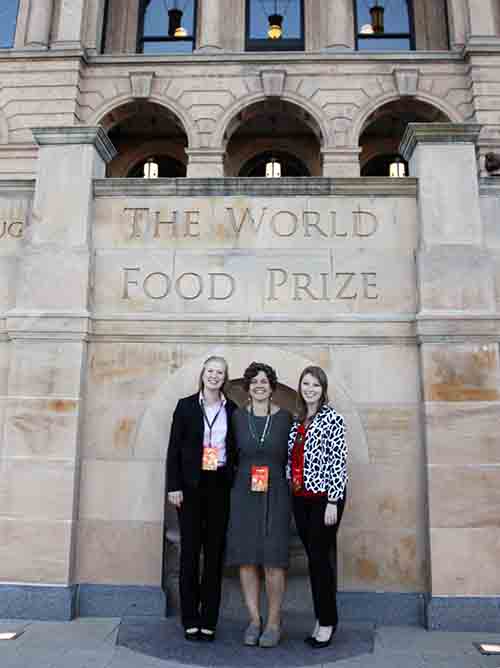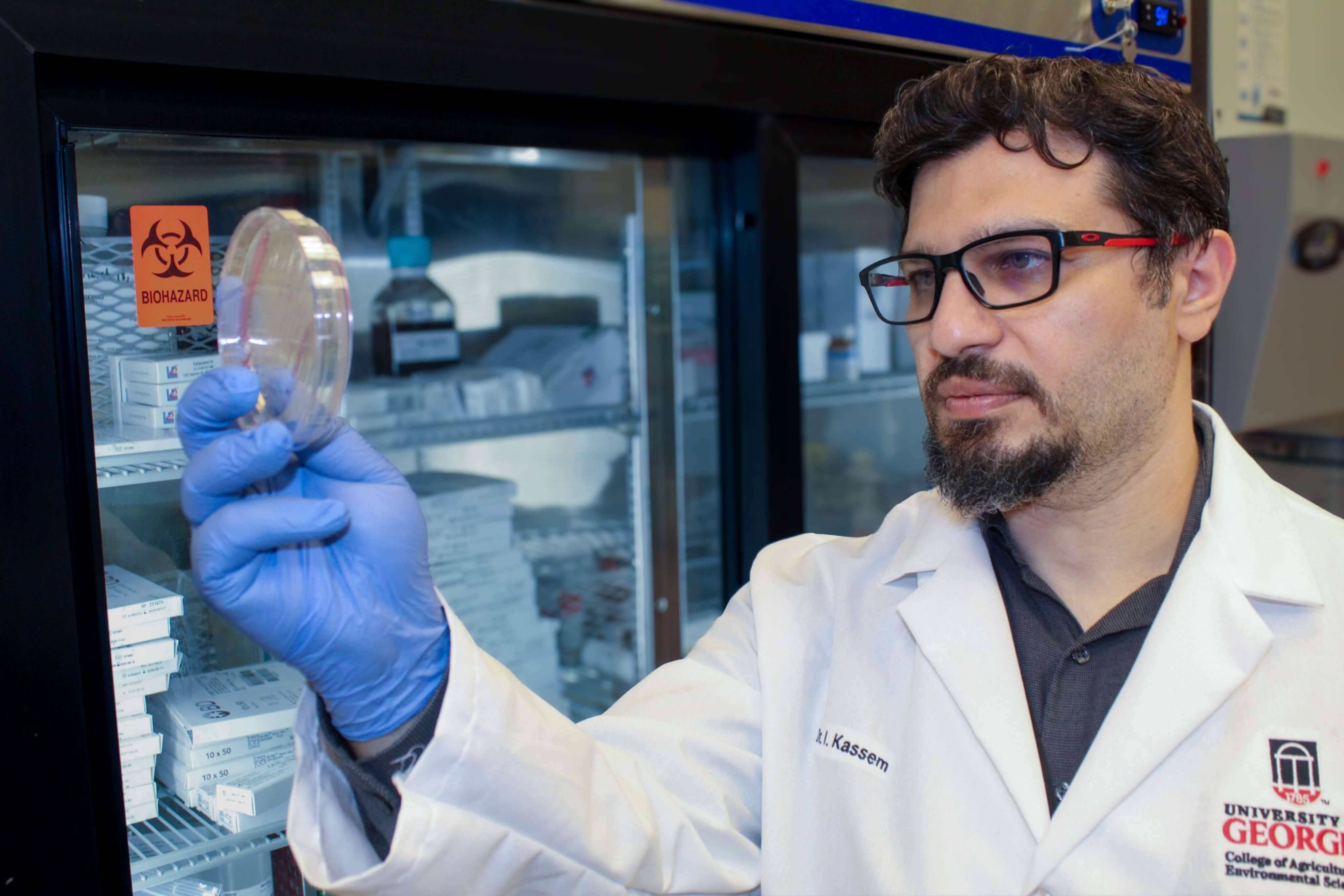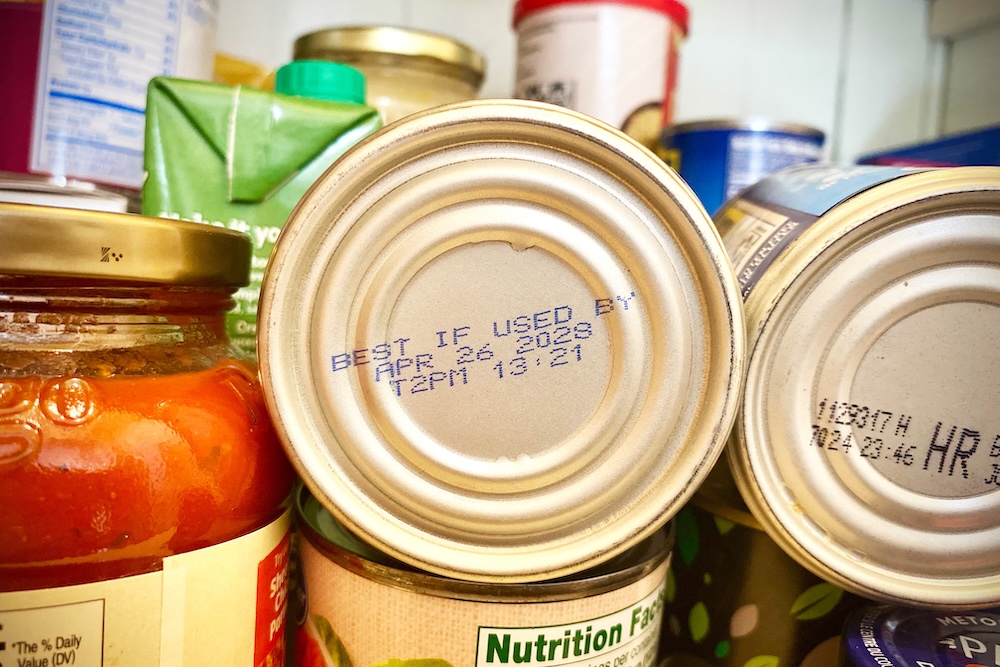In the middle of this season of feasting and fêtes, it can sometimes be easy to forget about the plight of people who struggle to have enough to eat.
For two University of Georgia College of Agricultural and Environmental Sciences students who had the chance to attend the 2015 World Food Prize Borlaug Dialogue this fall, that won’t be the case this year.
As the 2015 winners of the inaugural CAES Office of Global Programs’ (OGP) World Food Prize Student Travel Award, CAES graduate student Emily Urban and fourth-year CAES undergraduate student Erin Burnett traveled to Des Moines, Iowa, to participate in what is referred to as the “premier conference in the world on global agriculture.”
There, they were able to meet international leaders and experts in food insecurity and discuss ways to feed the world’s hungry.
The Borlaug Dialogue, a symposium of keynote speeches and roundtable discussions held each year in conjunction with the presentation of the World Food Prize, which is commonly referred to as the “Nobel Prize for Agriculture,” brings together a diverse group of world “hunger fighters,” including CEOs, political leaders, agricultural scientists and philanthropists, to discuss agricultural development and solutions to food scarcity. This year, Clinton Foundation Vice Chair Chelsea Clinton, Howard G. Buffett Foundation Chairman and CEO Howard Buffett, several current world leaders, top crop scientists and representatives from the Bill and Melinda Gates Foundation were on hand for the discussions.
“I was struck not only by the high caliber of the event and its participants, but also by its surprising intimacy,” said CAES OGP Associate Director Vicki McMaken, who traveled with the students to this year’s event.
“It was a tremendous experience for our students to spend three days not just listening to, but also meeting and talking with international leaders in the field. We are pleased that the OGP World Food Prize Travel Award will provide this prestigious opportunity to CAES students on an annual basis.”
For the students, the experience left them both with an appreciation of the U.S. agricultural system and new optimism and a drive to work toward feeding the world’s growing population.
“Solving global food security issues is an immense challenge, and we know that,” Urban said. “We know that the challenge is growing, with increased globalization, climate change and population increases. We can repeat the statistics and repeat them again … These are very complicated issues, and they are not going to be solved without collaboration. That is what is really valuable about (the Borlaug Dialogue). You had leading scientists sitting next to business leaders. (They’re) from totally different realms, but (they’re) both discussing the challenge of ending food insecurity.”
For Burnett, the discussions highlighted how important it is for farmers and people involved in agriculture to effectively communicate with the nonfarming public about the need for new technologies, like improved crop varieties.
This means explaining how modern research impacts hungry people around the world without becoming defensive, she said.
“A lot of times when people start attacking agriculture in any way, we feel offended personally because it’s been such a big part of our lives,” Burnett said, after sitting in on a panel discussion of the controversy over genetically modified crops. “But I really feel like the way to have a conversation that is engaging to both parties is to realize you have a common goal, and that goal is to feed hungry people.”
For more information about the opportunities that CAES students have to work on global food security issues and with the international agricultural community, visit global.uga.edu.








